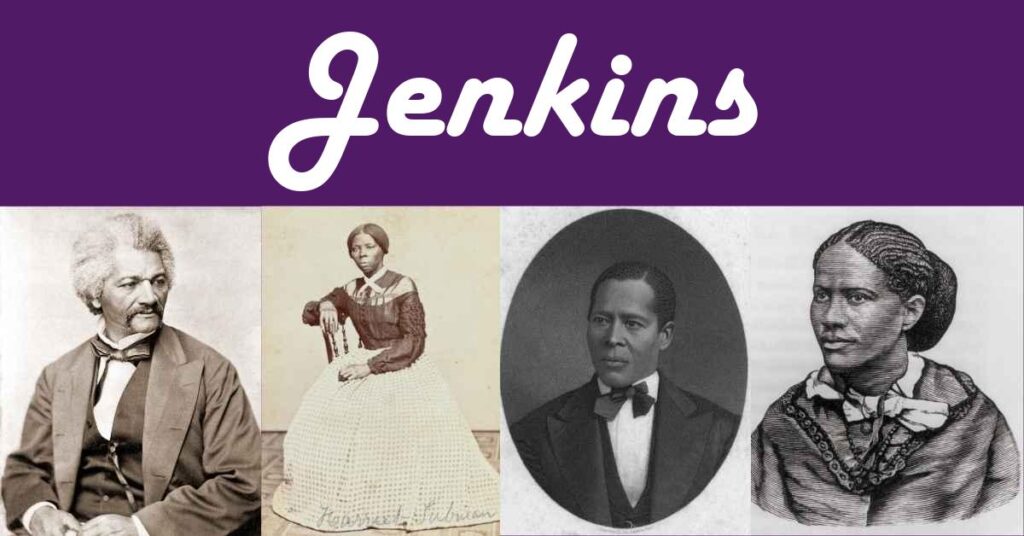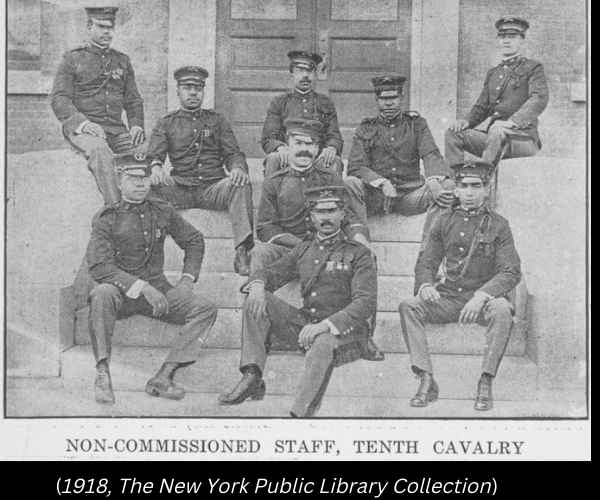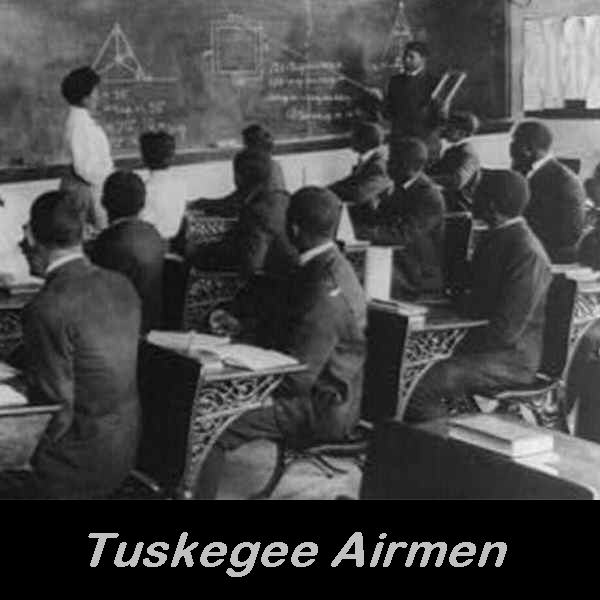The 2010 U.S. Census recorded 82,382 black Americans with Jenkins as their last name. That represented 37% of the total of 222,653 entries.
This article traces how the black representation of this name has grown since the Civil War. We also look at historic African American people named Jenkins in recent centuries.
We end with a review of early records of black military service in the United States.
After The Civil War

The 1870 census was the first survey after the Civil War and the Emancipation Proclamation.
In 1850 and 1860, only free African Americans were recorded in the census. The many enslaved were omitted.
From 1870 onwards, all black Americans were included.
10,105 people named Jenkins were recorded in the 1870 census as black and 1,185 as mixed.
There was a total of 35,677 people with the name.
Jenkins In The 1900 And 1940 Census
The mixed category was dropped from the 1900 census, so we just need to look at the black numbers this time.
The 1900 census recorded 19,565 people with the last name Jenkins as black within a total of 63,154 that year.
By the way, the mixed category returned in the 1910 and 1920 censuses. It was dropped again in 1930, but replaced with extra categories for colored and non-white in a way that seems confusing now.
This changed again in 1940 and we can simply focus on one black category.
The 1940 census recorded 32,564 people named Jenkins as black within a total of 110,941.
Historic Black Figures With The Jenkins Surname

Here are some notable African Americans in history with Jenkins as their last name.
Frank Jenkins
- Born: 1902
- From: Monterey, California
- Died: 1973
Frank’s father was was a commissioned soldier who fought in Spanish American War with the black 9th and 10th Cavalry regiments.
Jenkins Sr. was part of the famous victory of the Battle of San Juan Hill in Cuba. Teddy Roosevelt also fought in that battle, and Jenkins Sr. always referred to the soldier who became President with great respect.
Against his parent’s wishes, Frank left school in 1918. But his father had now left the army and was working for a shipping company. He secured a job at the docks for his son.
Frank joined the ILA, the International Longshoreman’s Association, a union for dock workers. This was one of the first American unions that accepted black workers.
When the ILA became the ILWU (International Longshore and Warehouse Union), Frank got involved as a local leader.
As one of the first black union leaders in the country, he strove for decades to reduce the traditional racist practices of favoritism and differences in pay.
You can learn more about Frank in this article from the University of Washington.
Phyllis Jenkins
- Born: 1930
- From: Bronx, New York
- Died: 2022
Phyllis started working as a nurse’s aide as a teenager. Senior nurses recognized her talent and encouraged her to train to be a RN (Registered Nurse).
She qualified as a psychiatric nurse and became one of the co-founders of the National Black Nurses Association (NBNA).
You can see a photo of the NBNA co-founders on their website.
Although Phyllis married young and had two children, she divorced at nineteen. Her subsequent relationships would be with women.
In 1970, she became the first black female Medical Officer for the Peace Corps in Sierra Leone. In the late 1970s, she co-founded the Swaziland Institute for Health Sciences.
Back in the U.S. during the Aids crisis, Phyllis worked as a counselor to people living with HIV. In her later years, she joined LGBT celebrations and marches.
Other black American pioneers in Africa
Phyllis Jenkins was one of several notable figures who established educational facilities in African countries.
- Andrew Foster, a deaf educator, opened schools for the deaf in 13 African countries
- John Wesley Gilbert established schools in the Congo in the early 20th century
Jenkins In Black Military Records

Military records are a rich resource of for family history research. Here are examples of the Jenkins surname from three different military services:
- Buffalo soldiers
- Black civil war sailors
- Tuskegee airmen
Buffalo Soldiers
Five regiments for black soldiers were formed during the Civil War. They were known as the Buffalo Soldiers.
Their records are part of the national archive of military monthly returns. The information includes the year and place of birth, where they enlisted, their occupation, and their height.
I’ve already mentioned that the father of union leader Frank Jenkins served in black cavalry regiments. I haven’t established his name, so I’ll look at some Jenkins in general.
One of the earliest military entries for Jenkins was in 1867. Tilman Jenkins was a Private in the United States Tenth Cavalry. He was stationed in 1867 at Jefferson Barracks, Missouri.
One of the later entries was in 1915. Joseph Jenkins was a Private in the United States Ninth Cavalry.
If you are researching military ancestors, there is a free index of these records on Ancestry.com and FamilySearch.org.
You have to create an account on either website, but you do not need to pay for the Buffalo Soldiers archive.
Black Civil War Sailors
The National Parks Service has a free archive of African American sailors during the Civil War.
The information includes their age, height, rank, occupation, and where and when they enlisted. It also includes every ship that they served on.
You can search the database on the National Parks website. Here is the kind of rich information to be found:
Marion Jenkins
One of the earliest entries for Jenkins was for Marion Jenkins from Baltimore, Maryland. He enlisted in 25 November 1861 at Boston when he was aged 25.
The record shows that Marion was assigned on August 1864 to the ship Bermuda.
His occupation before enlisting was as a Cook. His naval rank was Landsman.
“Landsman” was the lowest rank at the time and was given to recruits with little sea experience.
Albert Jenkins
One of the later entries was for a sailor who enlisted at Cairo in September 1864. Albert was aged 16 and was from Black River, Mississippi.
He was assigned to the ship Curlew on April 1865.
His occupation before enlisting was as a Laborer. His naval rank was 3rd Class Boy.
“3rd Class Boy” was the rank given to young men who were under eighteen when they enlisted.
Tuskegee Airmen

The Tuskegee Airmen were military personnel who served at the Tuskegee Army Airfield or related programs.
Nearly one thousand black pilots graduated from the Tuskegee Institute. They flew single-engine fighter planes or twin-engine bombers. 352 fought in combat.
Garfield Jenkins graduated from the Tuskegee Institute in Jenkins. He qualified in November 1944 as a fighter pilot. Garfield was from Chicago, Illinois.
Silas Jenkins came from Lansing, Michigan. He graduated in October 1944 as a bomber pilot.
They are just two of five pilots named Jenkins on the graduate rolls. You can find the others in our full list of Tuskegee Airmen.